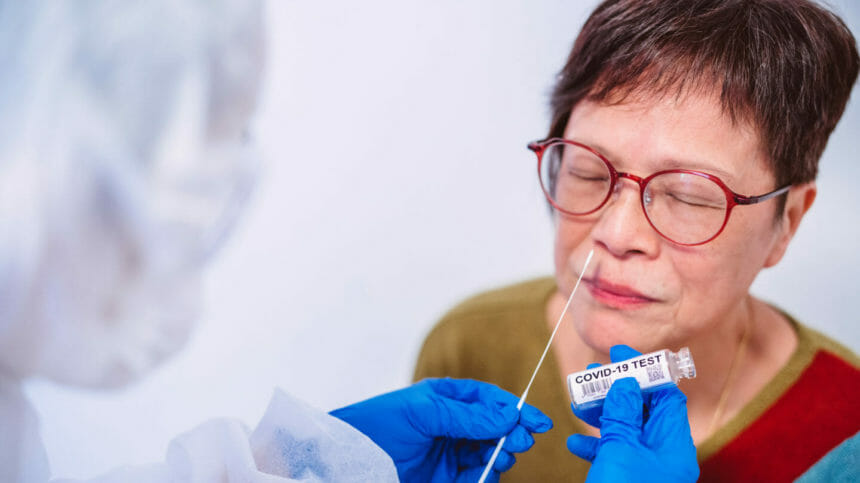
Natural immunity due to COVID-19 infection provides strong protection against reinfection and serious illness for several months after initial infection, but immunity wanes over time, a new study has found.
The comprehensive study, which was conducted by researchers from the Institute for Health Metrics and Evaluation (IHME) and University of Washington School of Medicine, found that for someone previously infected with COVID-19, the risk of hospitalization or death is 88% lower for at least 10 months compared to those who had not previously been infected.
The findings were published on Feb. 16 in the peer-reviewed journal The Lancet. Researchers based their findings on a systematic review and meta analysis of 65 previous studies from 19 countries to evaluate the effectiveness of past infection by outcome and the time since infection.
The analysis also found that the level of protection against reinfection, symptomatic disease and severe disease was at least as high as that of two doses of the mRNA vaccines for the original COVID strain and alpha, delta and omicron BA.1, but the study did not include infection data on the more recent omicron subvariants.
Despite the strength of protection from natural immunity up to 10 months, protection against COVID reinfection appeared to decline significantly after 10 months.
Authors warn the study’s finding should not deter the public from becoming vaccinated. There is a risk of becoming seriously ill or death from initial infection and waning of natural immunity over time, particularly against new COVID variants, they said.
“Vaccination is the safest way to acquire immunity, whereas acquiring natural immunity must be weighed against the risks of severe illness and death associated with the initial infection,” lead author Dr. Stephen Lim from the Institute for Health Metrics and Evaluation at the University of Washington School of Medicine, said in a news release.
“The limited data we have on natural immunity protection from the omicron variant and its sub-lineages underscores the importance of continued assessment, particularly since they are estimated to have infected 46% of the global population between November 2021 and June 2022,” IHME co-author Hasan Nassereldine, MD, noted in the release. “Further research is also needed to assess the natural immunity of emerging variants and to examine the protection provided by combinations of vaccination and natural infection.”



